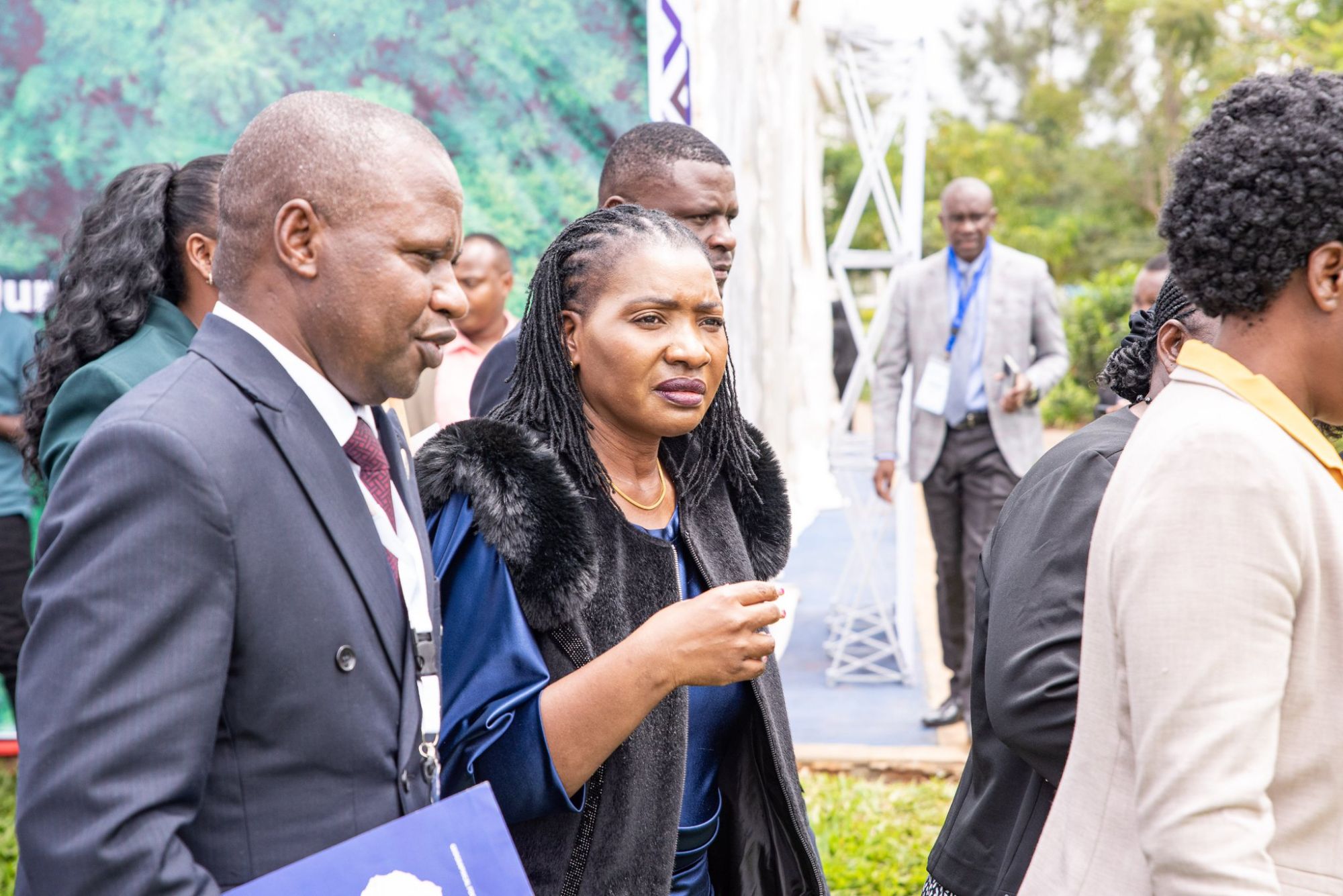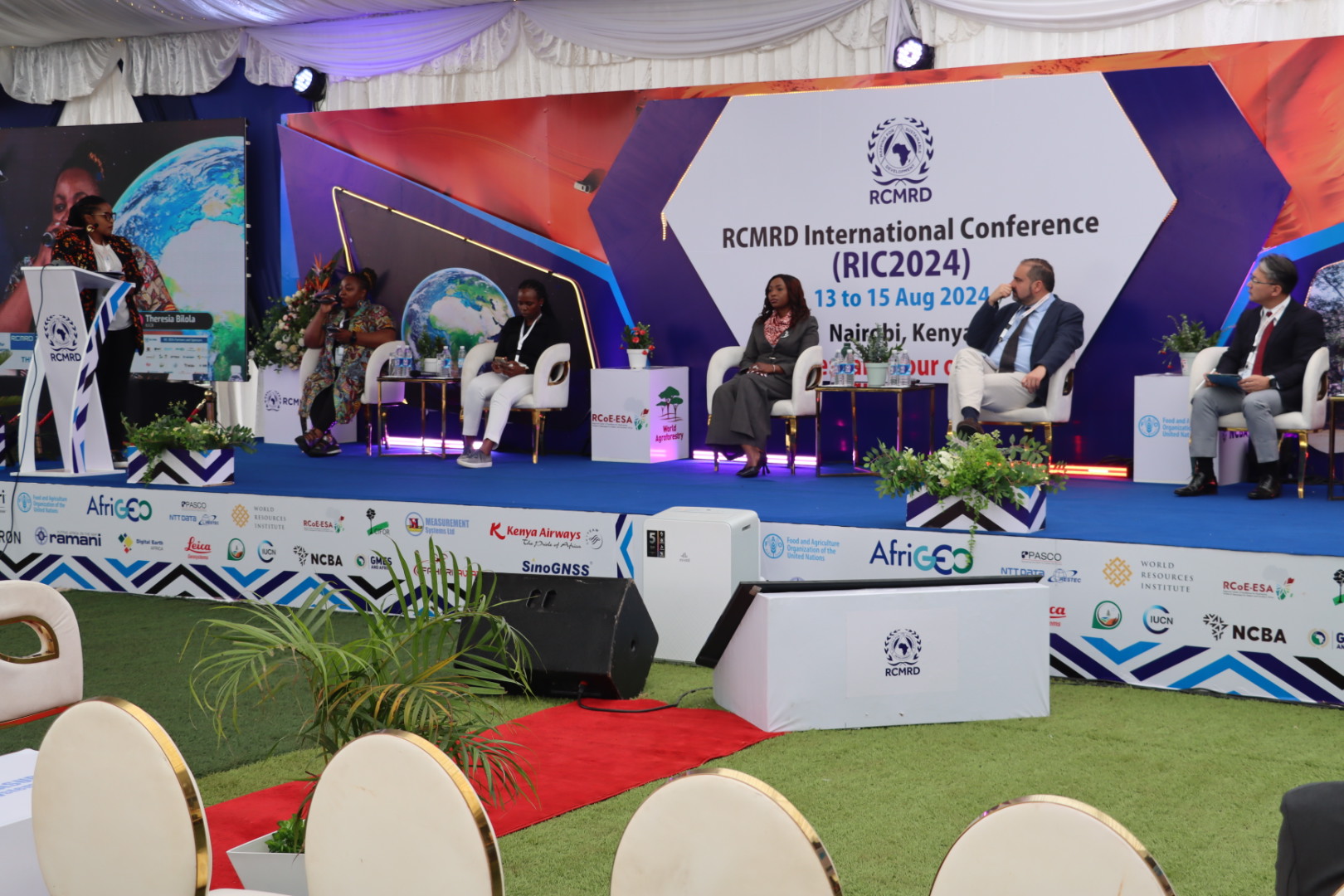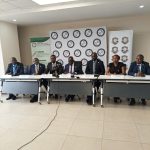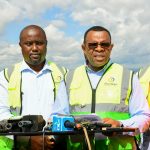The 8th AfriGEO Symposium, held in Nairobi, Kenya, marked a pivotal moment in Africa’s journey to leverage Earth Observation (EO) technologies for sustainable development. The event coincided with the official opening of the RCMRD International Conference (RIC 2024) at the Regional Centre for Mapping of Resources for Development (RCMRD). This convergence enabled attendees to engage in enriched dialogues that bridged both events, setting the stage for transformative discussions on EO applications across the continent.
The symposium began with a powerful keynote address and a plenary session centered on the theme “Our Home: Policy Formulation and Science Policy Linkages.” Moderated by Lorien Innes from Esri Inc., the session underscored the critical connection between scientific research and policy-making. The emphasis was on the need for clear communication channels between scientists and policymakers, ensuring that complex data is translated into actionable policies aligned with national priorities and sustainable development goals.
The moderator , Dr. Thandikile Mbvundula from the Malawi Space Agency Task Force and Vice President-elect of the African Space Council, highlighted the challenges and opportunities in bridging the gap between science and policy. She stressed the importance of making scientific findings accessible to policymakers, enabling them to grasp the relevance of these insights for their countries’ broader development agendas. Her message resonated with the audience, setting a tone of collaboration and shared responsibility.

Adding to the rich tapestry of insights, Dr. Yamamoto Kohei from PASCO, Japan, presented on the Advanced Land Observing Satellites (ALOS 2 and 4), which offer Synthetic Aperture Radar (SAR) data critical for various thematic applications. His presentation showcased how advanced EO technologies could support informed decision-making across multiple sectors, emphasizing the importance of EO in shaping Africa’s future.
The plenary session featured a diverse panel of experts, including Fortunate Muyambi from the EAC-Regional Space Science and Technology, Mustapha Iderawumi, Senior Analyst at Space in Africa, Andrew Murdock from GEO, Switzerland, Luciano Lupedia from Angola’s National Space Programme, Peter Minang from CIFOR-ICRAF, and Dr. Kenneth Mubea from Digital Earth Africa. The panelists delved into the essential nature of science-policy linkages and the processes involved, discussing the importance of these connections for effective Earth management.
The session seamlessly transitioned into the official opening of RIC 2024. This ceremony marked the beginning of a week-long series of events that would shape discussions on EO in Africa. AfriGEO delegates and a broader audience participated in the opening, celebrating the convergence of minds and expertise in EO from across the continent. Hon. Rachel Nyamai, Kenyan Member of Parliament for Kitui South Constituency, delivered the keynote address on behalf of the Rt Hon Speaker of the National Assembly, Dr. Moses M. Wetang’ula, EGH, MP.
Hon. Nyamai’s address emphasized the transformative potential of EO in empowering African nations to make informed decisions on land use, resource management, and environmental conservation. She highlighted the need to leverage EO technologies to drive data-driven policies that support economic growth, food security, and climate resilience. Her remarks set an inspiring tone for the conference, officially opening the RCMRD International Conference (RIC 2024) and signaling the start of what promises to be a series of impactful discussions and collaborative engagements.
The focus then shifted to a plenary session on the Post-2025 GEO Implementation Plan, moderated by Mr. Andrew Murdock from the GEO Secretariat. This session provided comprehensive updates on the GEO implementation plan and its pillars, integral to achieving “Earth Intelligence for All.” Esteemed speakers, including Dr. Mmboneni Muofhe, Dr. Amadou Sall, and Mr. Charles Mwangi, shared their perspectives on the effective execution of the plan across the continent, with discussions emphasizing the role of EO in enhancing natural resources management, food security, and sustainable development.
The symposium activities concluded with a technical session focused on applying EO in agriculture and food security, moderated by Dr. Kenneth Mubea, Capacity Development Manager at Digital Earth Africa. This session featured a series of insightful presentations from experts across the continent. Mary Maneno from the International Land Coalition Africa, Kenya, kicked off the session with a compelling presentation on the significance of proper land governance in combating food insecurity. Wessel Bonnet from the Council for Scientific and Industrial Research (CSIR) in South Africa followed with an exploration of the Brightness-Shape-Moisture model for grassland soil moisture estimation.
Further enriching the session, Jagila Jantiku from Nigeria’s National Space Research and Development Agency (NASRDA) presented gender-inclusive strategies for sustainable agriculture, advocating for equitable access to resources and opportunities for women in farming communities. Wallace Tapiwa Gara from the Geospatial Society of Zimbabwe provided a case study on the impacts of land use changes on ecosystem services, while Linus Anari from the University of Nairobi contributed a presentation on food insecurity risk mapping through spatial disaggregation. The session was capped off by Tom Ouna from Karatina University, Kenya, who explored agricultural investment and sustainability in conflict-affected drylands.
The technical session was a fitting close to an eventful day, leaving attendees with a deeper understanding of how EO technologies and data can be applied to enhance food security across Africa. The diverse presentations provided a rich exchange of ideas and best practices, offering actionable insights to drive future efforts in the intersection of EO, agriculture, and food security. As the day came to a close, participants were left with a sense of purpose and optimism for the role of EO in shaping Africa’s sustainable future.










